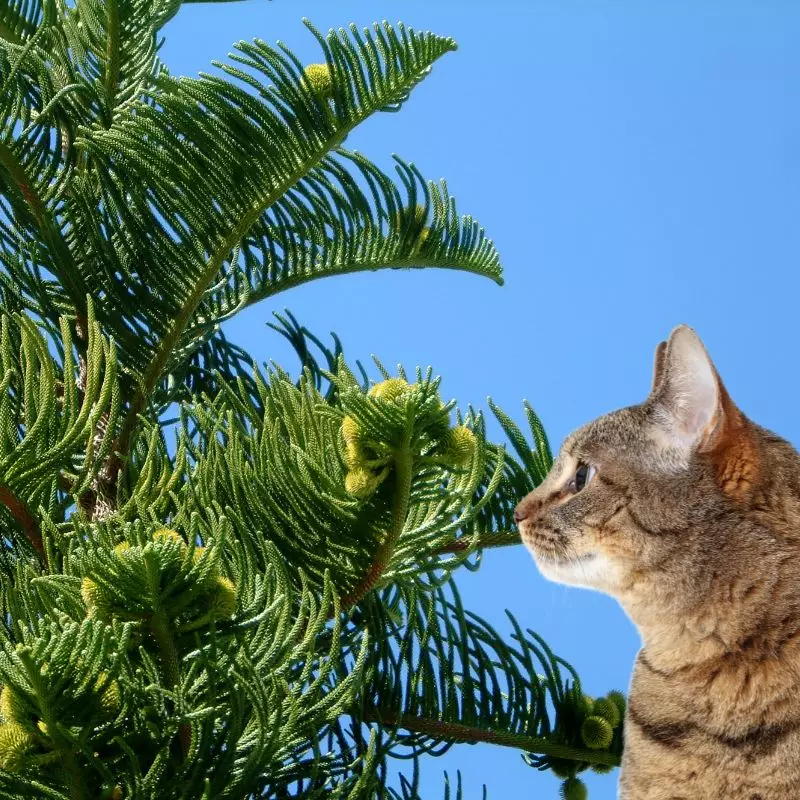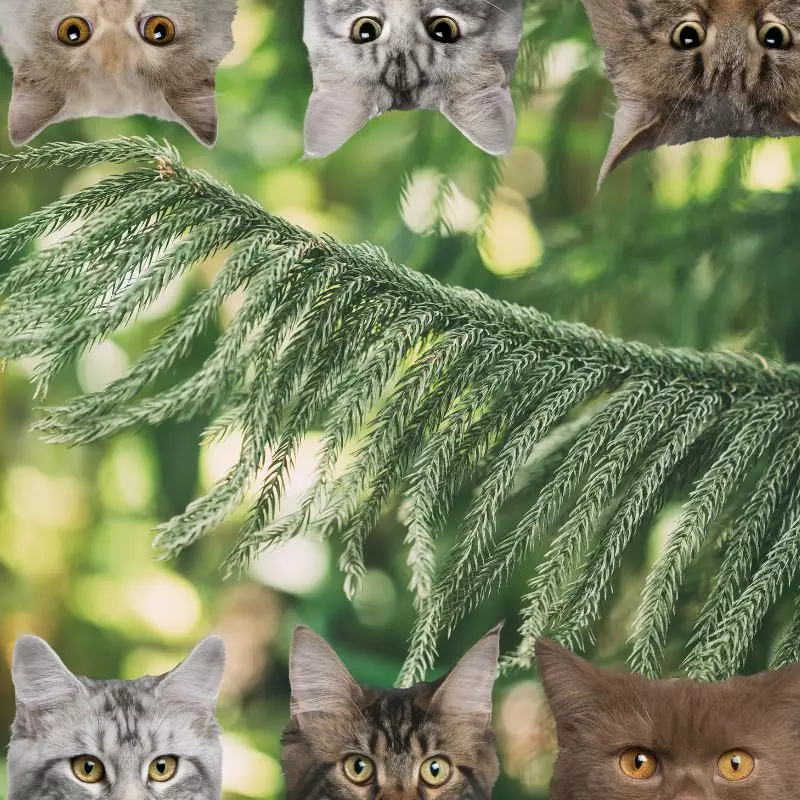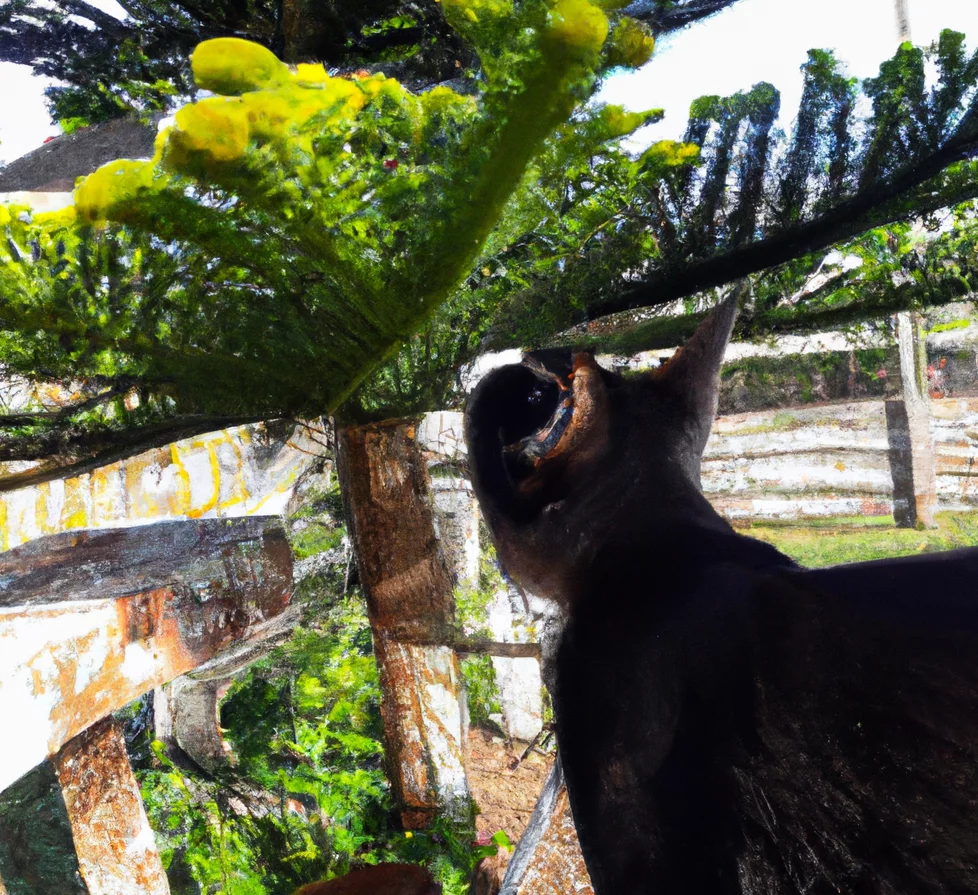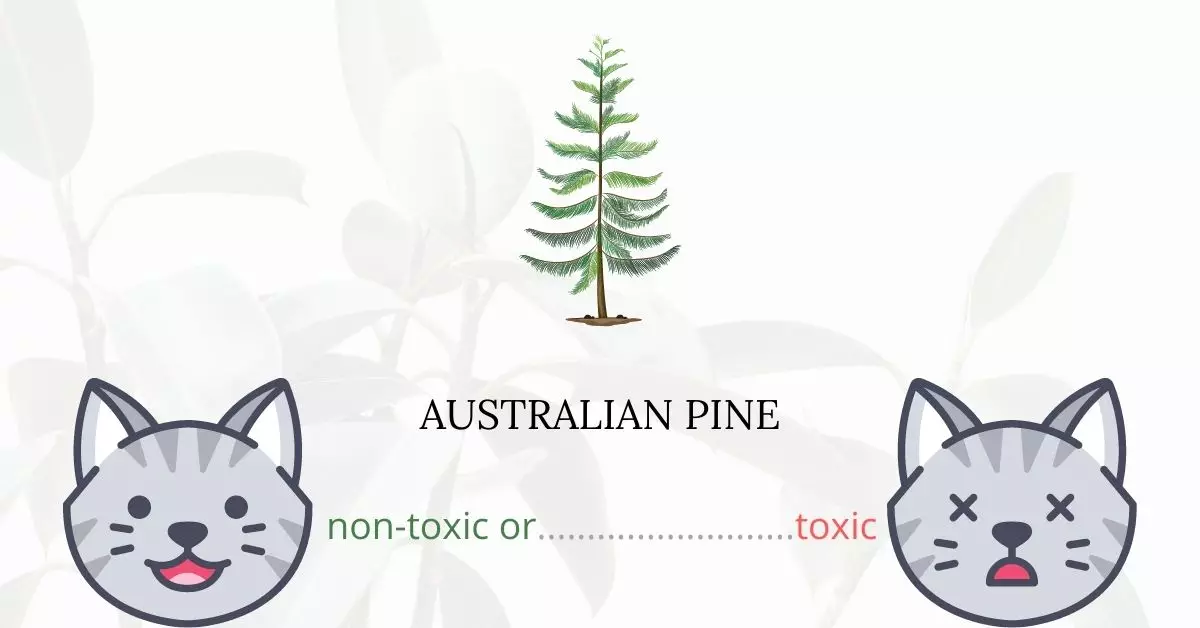Australian Pine, alternatively known as Norfolk Pine, House Pine, or Norfolk Island Pine, is not considered toxic to cats, according to the American Society for the Prevention of Cruelty to Animals (ASPCA) Poison Control Center.
This article has been meticulously crafted in collaboration with a team of seasoned Doctors of Veterinary Medicine (DVMs), whose invaluable insights have enriched the content with accurate and current information on the potential risks various plants, like the Australian Pine, can pose to cats. In addition to the expertise provided by the veterinary professionals, extensive research has been conducted utilizing high-authority resources such as ASPCA and PetMD to validate every piece of information presented about each plant discussed, ensuring a comprehensive understanding of their effects on cats. Through this combined wealth of knowledge and research, our aim is to deliver reliable and precise content to cat owners, caregivers, and enthusiasts alike, fostering a safer environment for our feline friends.
Can Cats Eat Australian Pine or Norfolk Pine?

Cats are naturally curious animals. They have a propensity to touch, lick, and nibble on everything they find interesting in their environment, including plants.
If your cat nibbles a piece of Australian pine, it should not be a reason for concern. But, it’s also crucial to remember that fertilizers, pesticides, and other products containing chemicals used on plants might cause negative effects on your cat if swallowed.
Since plants aren’t normally a part of a cat’s diet, it’s best not to give your cat a portion of Australian Pine. Cats are carnivorous creatures. Carnivorous animals lack the enzymes required to assimilate and digest the plant food in their stomachs.
It’s advisable not to offer your cat a piece of Australian pine because plants aren’t generally part of a cat’s diet. Carnivorous animals like cats are meat-eaters. Carnivorous animals lack the enzymes needed to digest and absorb the plant matter in their stomachs.
What is Australian Pine or Norfolk Pine?

Australian pine or more commonly known as Norfolk pine is scientifically called Araucaria heterophylla. It is a coniferous tree endemic to Norfolk Island, an Australian overseas territory located in the Pacific Ocean between New Zealand and New Caledonia. This unique tree is not a genuine pine, which belongs to the Pinaceae family, but rather a member of the genus Araucaria, which belongs to the Araucariaceae family.
The Australian pine is a slow-growing tree with straight vertical trunks and symmetrical branches that develops to a height of 50 to 65 meters. Five branches grow from the straight stem, almost horizontal or slightly inclined. Young trees have delicate, awl-shaped leaves, whereas elder trees have incurved, variably wide leaves. The highest crown has the thickest, scale-like leaves on coning branches. The cones are squat, globose, and mature in about 18 months. When they reach maturity, they dissolve, releasing delicious nut-like seeds.
Keeping Cats Away From Australian Pine or Norfolk Pine

You can train your cat to avoid nibbling on plants, particularly the outdoor and unfamiliar ones. If you have plants at home, you try placing aluminum foil near your plants so they will not get near them. Aluminum foils have a crinkly feel and smell that cats dislike.
If your cat is a wanderer, it would be best to restrict his or her outdoor access to minimize the risk of encountering plants outside.
Plants to Avoid For Your Cats
If you are a cat owner and unsure if the plants growing in your yard are harmful to your cats, check out this list of toxic plants for cats. You can also check our list of non-toxic plants for cats.





